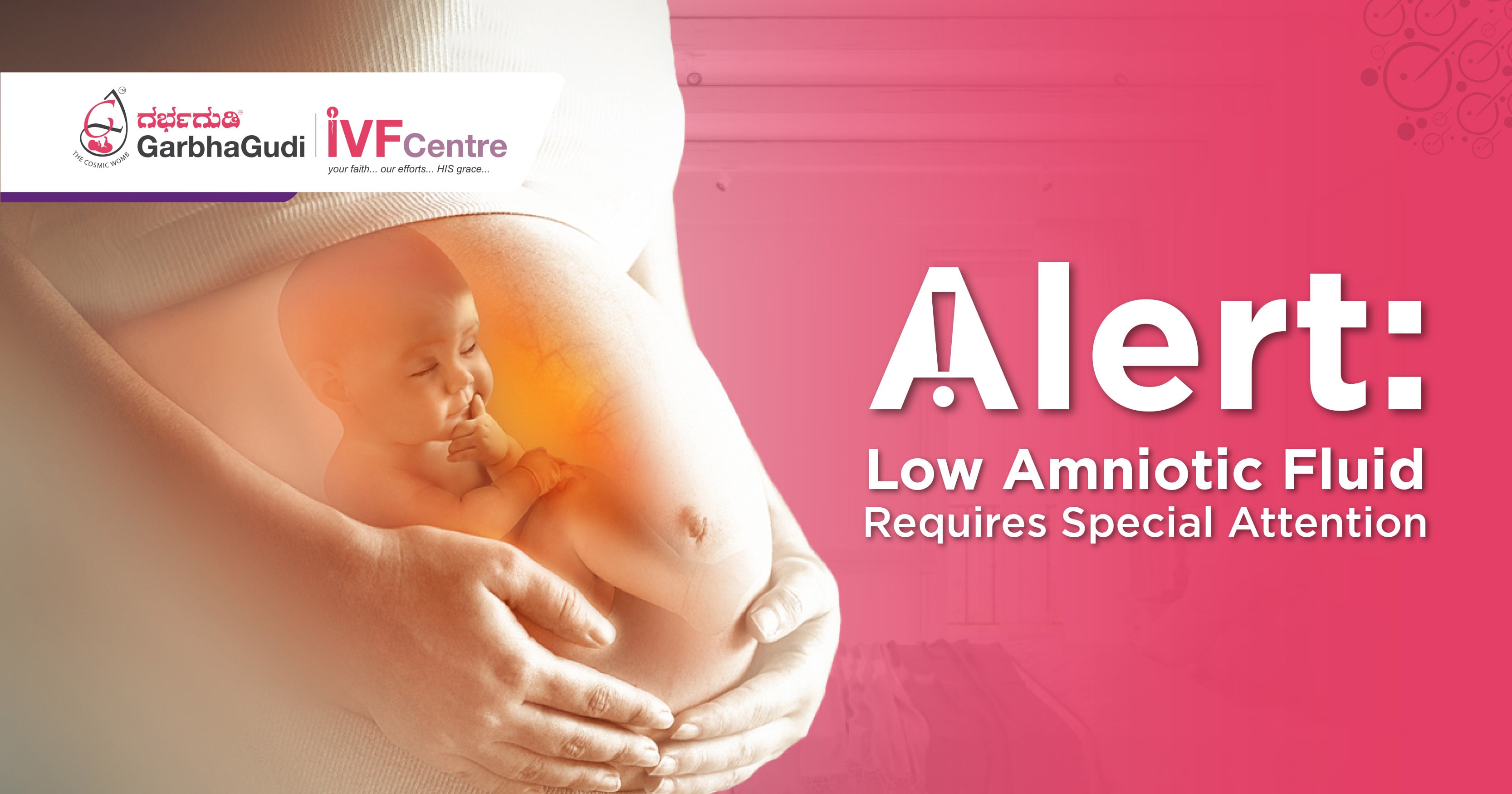Alert: Low Amniotic Fluid Requires Special Attention

While every pregnant woman’s body undergoes various changes, the build-up of amniotic fluid is one of the crucial factors determining the baby’s development and survival. It’s composed of fluid that protects the growing infant, helping develop and preventing umbilical cord compression. It also helps your baby move around, and that’s how you feel your little one’s kicks.
Generally, the quantity of amniotic fluid reflects the infant’s state of health. Having low amniotic fluid means that the presence of fluid is lower than the required amount for your baby’s age. This condition may occur anytime during pregnancy but most often during the last trimester. Medically, this condition is called ‘oligohydramnios’.
Oligohydramnios increases the chances of stillbirth or miscarriage. It also develops severe abnormalities in the fetus, significantly contributing to underdeveloped lungs. This is because amniotic fluid plays a vital role in the baby’s lung development and stimulates the lungs to grow. Also, low amniotic fluid levels affect blood, oxygen and nutrients transmission to the baby, leading to umbilical cord compression.
Symptoms of low amniotic fluid
Sometimes, it could be challenging to identify the symptoms of low amniotic fluid. However, your doctor may suspect if:
• Fluid leaks from your vagina
• Your uterus is small
• You don’t feel your baby’s movement
• You’re not gaining weight during pregnancy
Causes of oligohydramnios
There are several factors contributing to this condition, such as:
• Maternal health conditions, which include diabetes, preeclampsia, and dehydration
• Membrane rupture prematurely drains the mother’s fluids.
• Conditions related to infant development like poor development of the urinary tract or the kidneys
• Use of certain medications
• Previous due pregnancies that exceeded 42 weeks.
When should you approach your doctor?
Call your doctor without any delay if you experience any of the following:
• Leaking a lot of fluid from your vagina
• Bleeding
• Cramps or pelvic pain
• Contractions
• Decreased movement of your baby
The Bottomline
Oligohydramnios or low amniotic is a severe condition which should never be overlooked. It leads to potentially dangerous complications that can affect the baby’s growth and sometimes the mother’s health. You must approach your doctor at the right time and ensure that you are closely monitored. The doctor can help you determine the safest treatment option and may also recommend some alternative treatments like fluid injections. Remember to schedule frequent prenatal visits and never hesitate to tell your symptoms to your doctor. And don’t forget to drink that extra glass of water!
Share this page
About Us
GarbhaGudi is a chain of New-Generation Infertility Treatment Hospitals equipped with state-of- art-infrastructure & cutting-edge IVF Technology to address infertility issues & their emotional & mental effects on couples. We have a team of qualified & experienced doctors; their in-depth knowledge & expertise leaves no stone unturned to solve all your infertility issues. The Supportive & caring staff is always by your side to motivate & guide you throughout the journey. GarbhaGudi IVF, the best fertility treatment hospital in Bangalore, provides emotional support to couples facing infertility issues and sexual problems
Contact Us